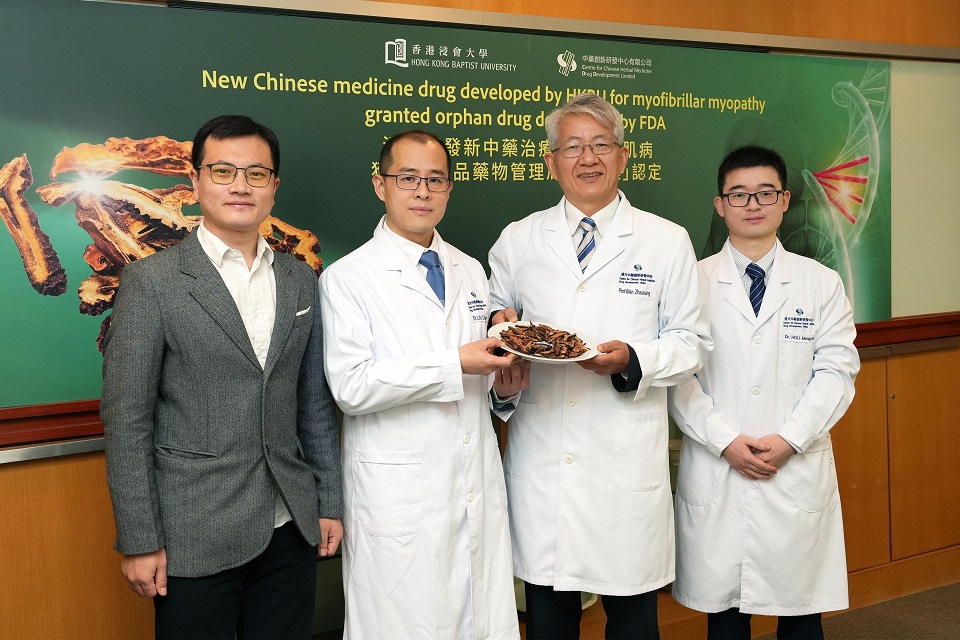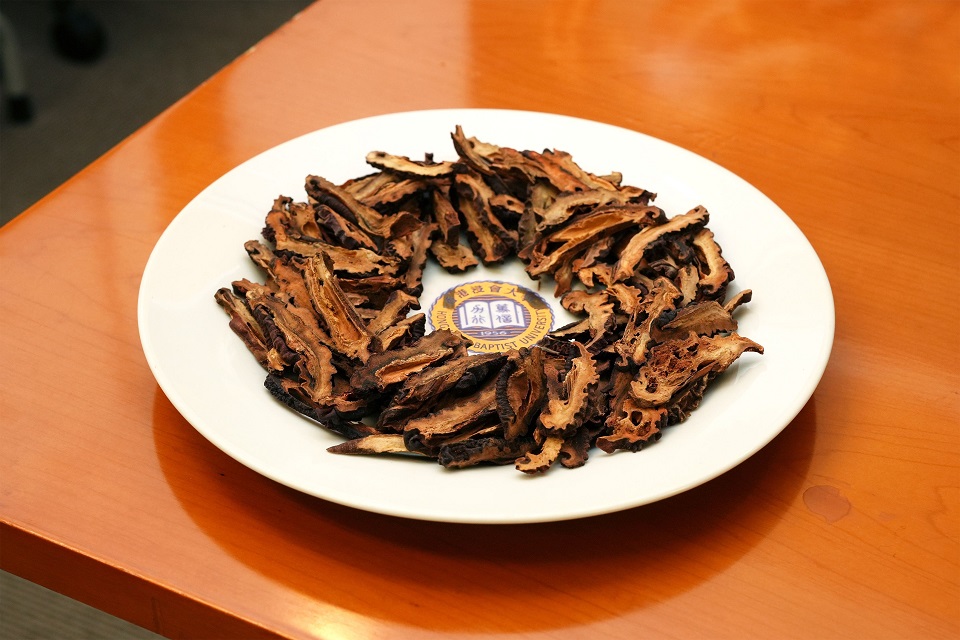Discover HKBU
HK’s first botanical drug granted FDA’s orphan drug designation
31 Jan 2024
HKBU’s Centre for Chinese Herbal Medicine Drug Development (CDD) has developed a new drug using effective components of a Chinese herbal medicine, Chaenomelis Fructus, for the treatment of the rare disease myofibrillar myopathy. The drug has obtained the orphan drug designation from the US Food and Drug Administration (FDA), and is the first botanical drug in Hong Kong to receive this qualification.
Myofibrillar myopathy, primarily caused by genetic mutations, including the BAG3 gene, is a rare hereditary neuromuscular disorder with symptoms resembling muscular dystrophy. Currently, there is no effective treatment for myofibrillar myopathy, and researchers are still exploring treatment approaches and evaluating their safety and efficacy.
Focusing on myofibrillar myopathy caused by BAG3 gene mutation (Bag3opathy), CDD made reference to clinical cases, integrated Chinese medicine theory with modern scientific technology, and made use of the effective components of a Chinese herbal medicine Chaenomelis Fructus to develop a new drug named CDD-2107.
Chaenomelis Fructus is the dried mature fruit of Chaenomeles speciosa (Sweet) Nakai, which belongs to the Rosaceae family. It is widely used for joint and muscle disorders, such as paralysis caused by summer heat-dampness, and pain in the waist and knee joints.
The research team, based on traditional Chinese medicine theory with a focus on clinical efficacy, applied modern Chinese medicine extraction and purification techniques in their studies. They identified the most important and effective components from the patients’ Chinese medicine prescriptions, and uncovered through research the potential treatment mechanism of CDD-2107, which could significantly relieve clinical symptoms in patients with myofibrillar myopathy by enhancing muscle strength, improving mobility, and increasing independence, thus offering new hope to the patients.
Professor Bian Zhaoxiang, Associate Vice-President (Chinese Medicine Development) and Director of the CDD, says: “CDD-2107 is the fruit of the integration of Chinese medicine theory and modern technology. Receiving the orphan drug designation by FDA is an encouraging milestone and recognition of our team’s dedication to scientific innovation.”
Success in obtaining orphan drug designation will accelerate the approval process of the new drug, including speeding up of the review process, waiver of the marketing authorisation fee, and seven years of market exclusivity for the approved product.
Professor Bian says: "We plan to submit an Investigational New Drug application in two years, which will be a crucial milestone in establishing CDD-2107 as an internationally recognised, safe, and effective treatment for Bag3opathy. Our ultimate goal is to obtain FDA approval for selling CDD-2107, benefiting more patients."

